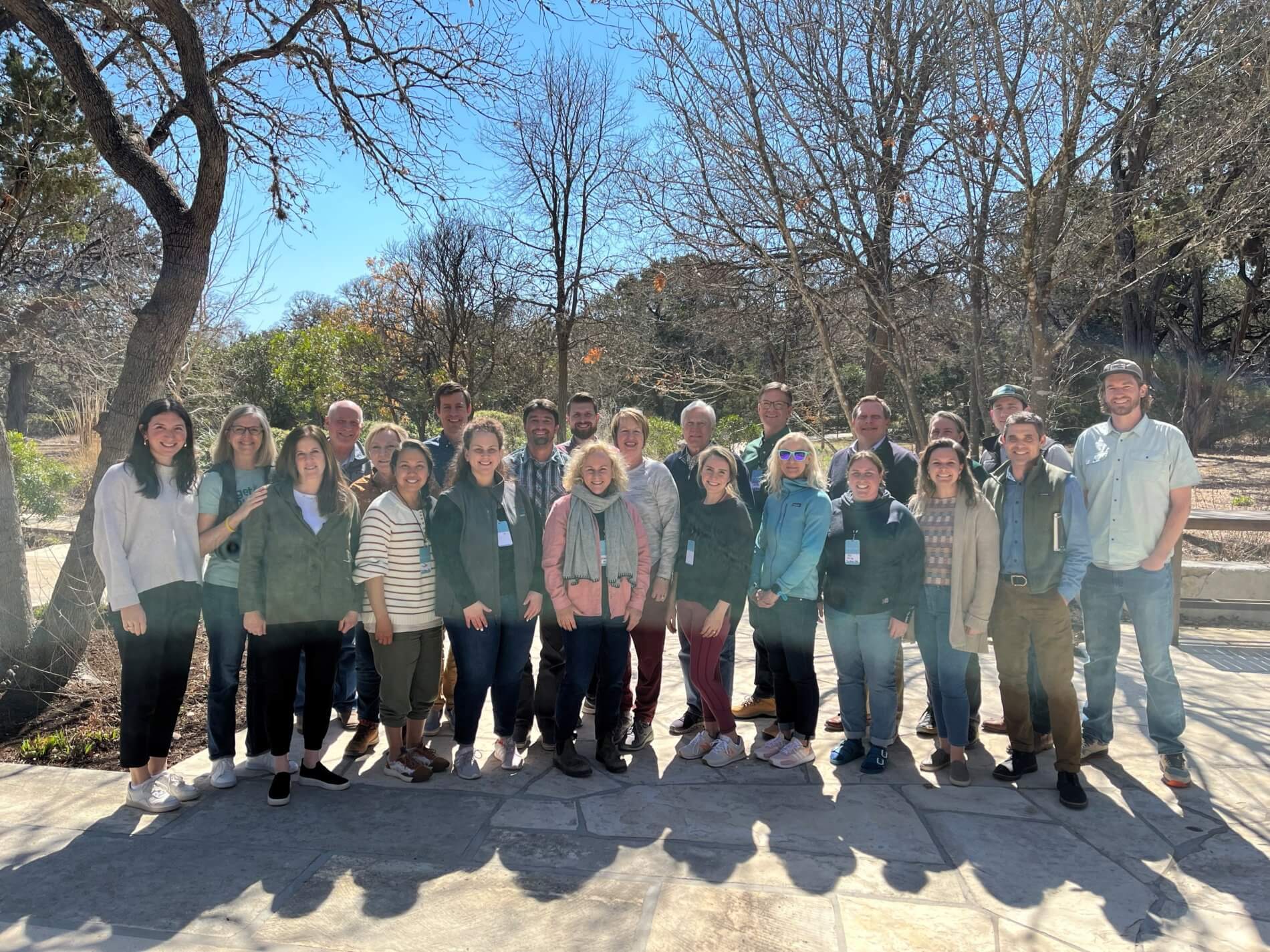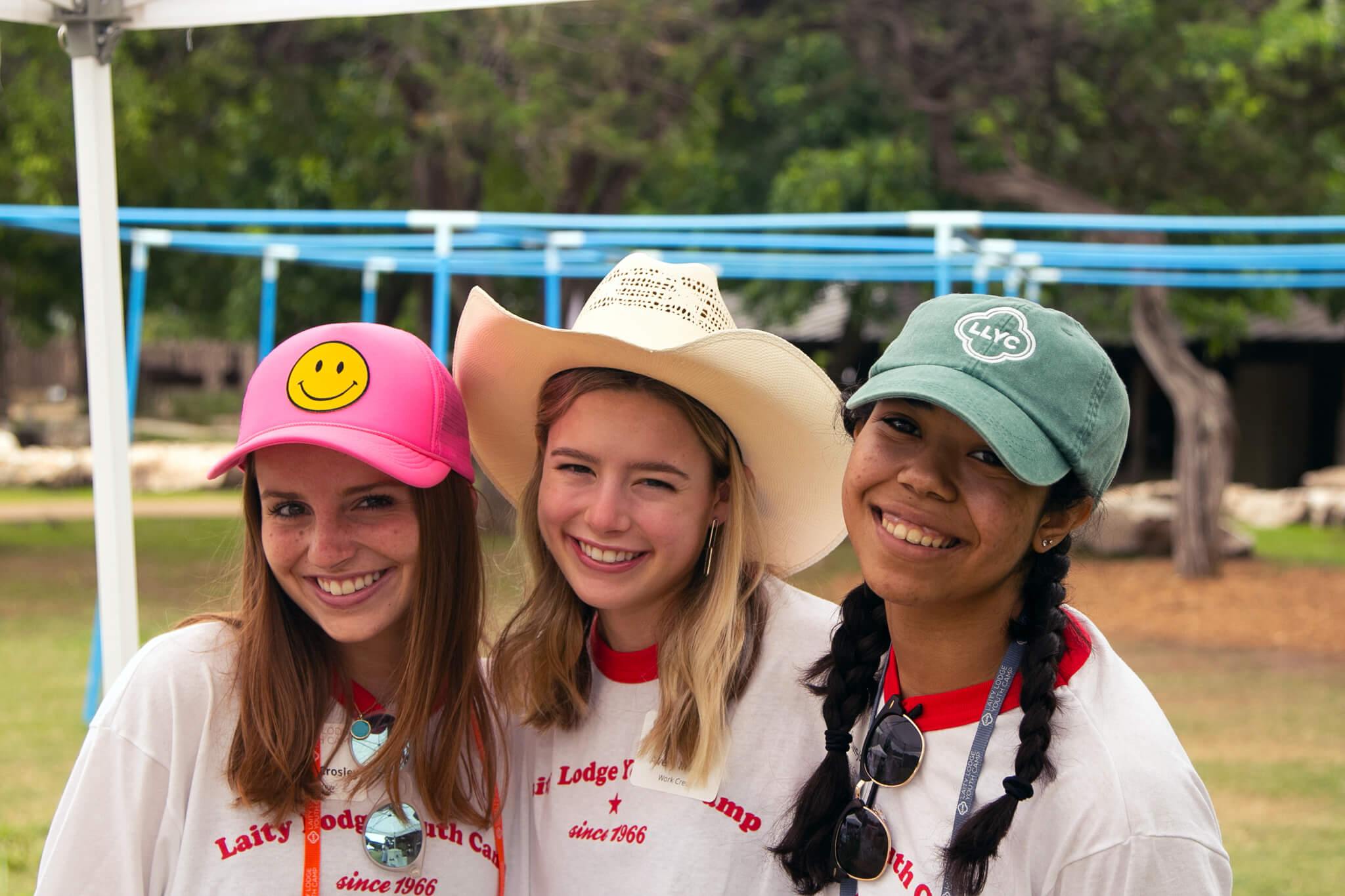

The H. E. Butt Foundation has spearheaded and funded a project to support mental health and wellness in camp settings, bringing together for the first time at Laity Lodge leaders of three camp organizations—the American Camp Association, Christian Camp & Conference Association, and Alliance for Camp Health.
So said Laurie Browne, the senior director of research & education for the American Camp Association (ACA), about a Laity Lodge retreat that took place in March of this year. Leaders of summer camp organizations from throughout America, including Laity Lodge Youth Camp and Laity Lodge Family Camp, gathered to better understand and support the mental health of their campers and staff.
“Everyone there was in strong agreement that mental health is an urgent need at camp,” Laurie said.
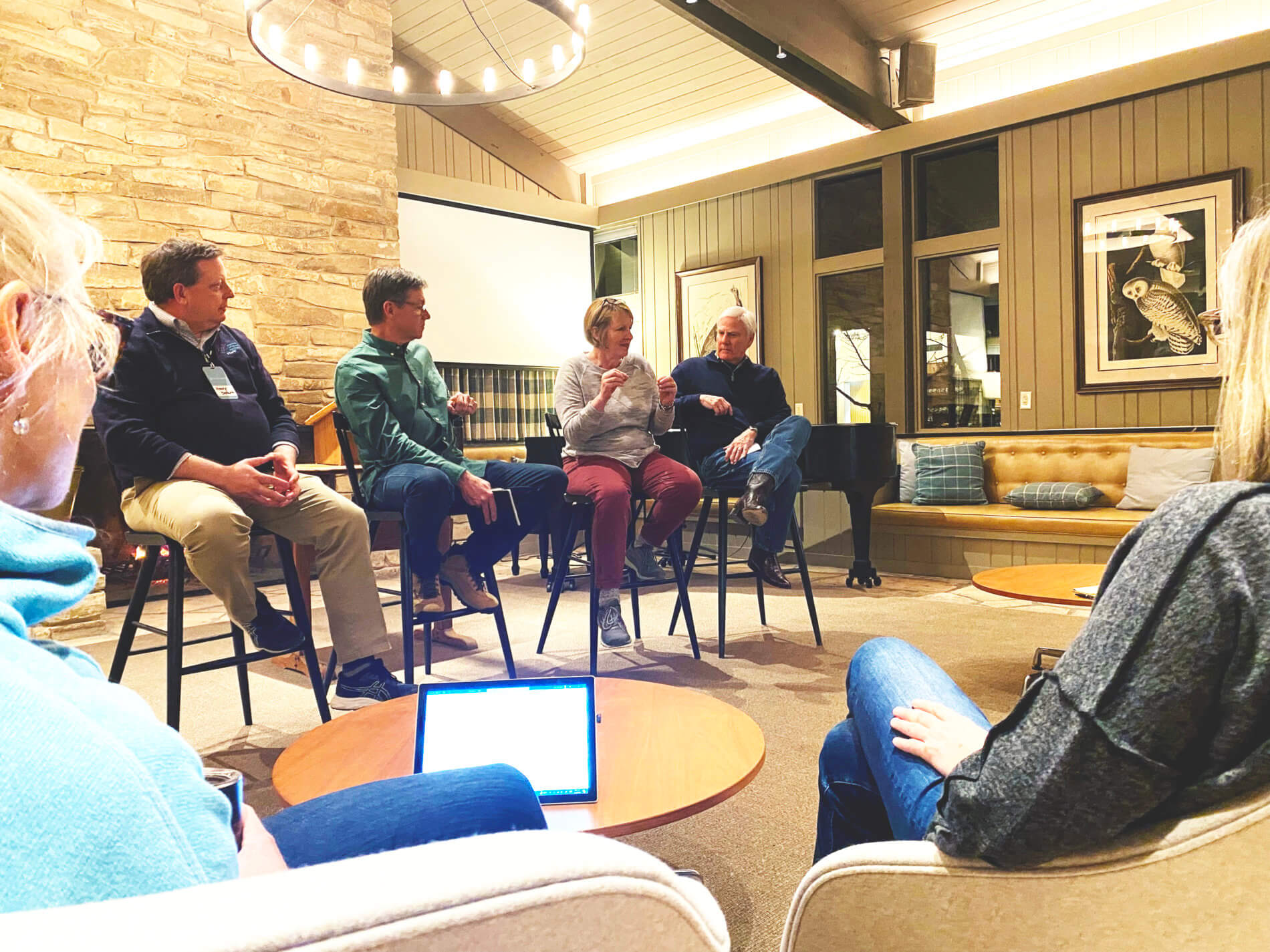
In January, the ACA surveyed organizations from all over the U.S. that held camp in summer 2021. The following month, they held focus groups with camp leaders at the 2022 ACA National Conference to supplement the data. This Lodge retreat served as time to review the results and outline potential strategies with other national camp organizations, like the Christian Camp & Conference Association and Alliance for Camp Health (formerly Association of Camp Nursing). Although a growing number of resources support the mental health and well-being of youth across the nation, camp is, by design, a unique setting. That also makes for unique problems.
How can camps squeeze even more training into already dense training periods? How can camps afford the time and money to work with mental health professionals? What if said professionals don’t understand the camp setting well? How can camps support the mental wellness of a staff that’s on-site 24/7 for months at a time? The list goes on.
These questions may be difficult, but answering them now is more important than ever.
According to the ACA’s survey, staff of most of those summer camps in 2021 were experiencing burnout. Conflict was harder to work through between campers. People had shorter fuses. There was more homesickness, anxiety, and stress, and less energy, communication, and patience.
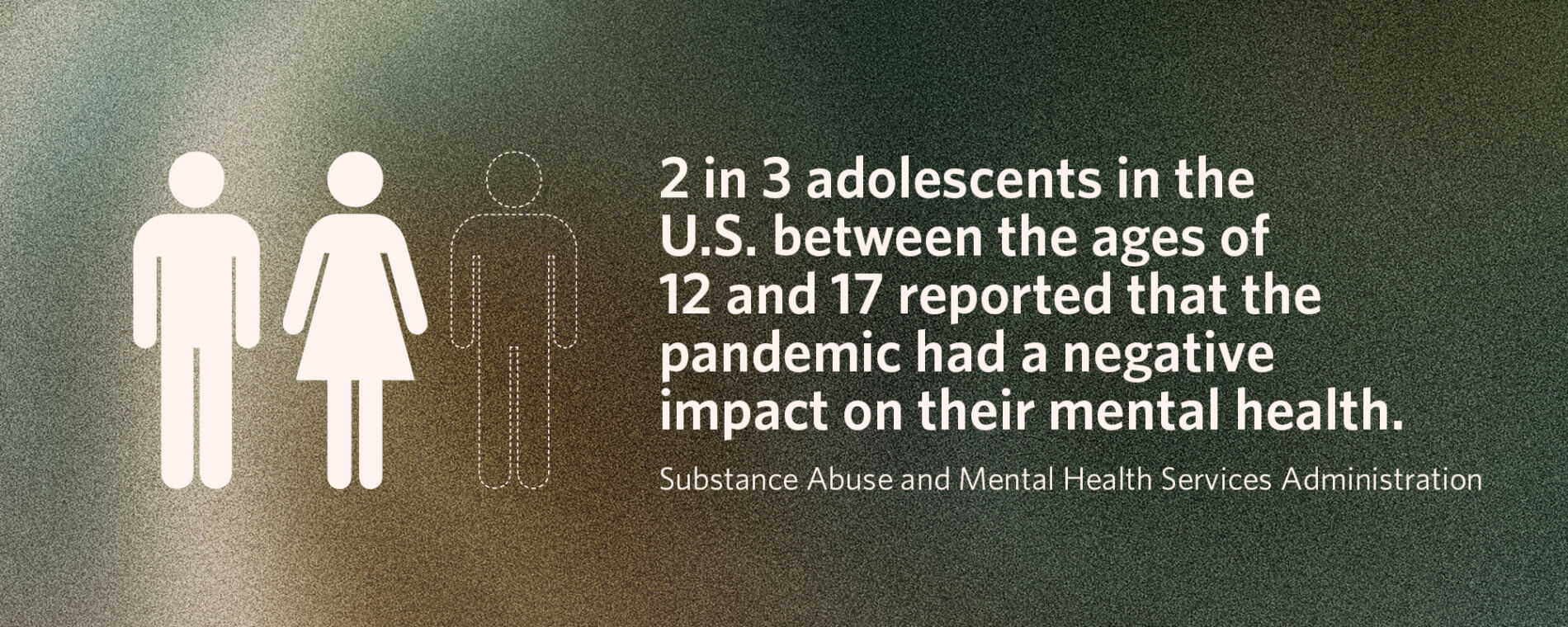
Camp HOPE America, one of the organizations that participated in the retreat, is a trauma-informed camping and mentoring program that focuses on children and teens exposed to domestic violence. They support this mental health initiative and recognize that its scope extends beyond campers they typically serve.
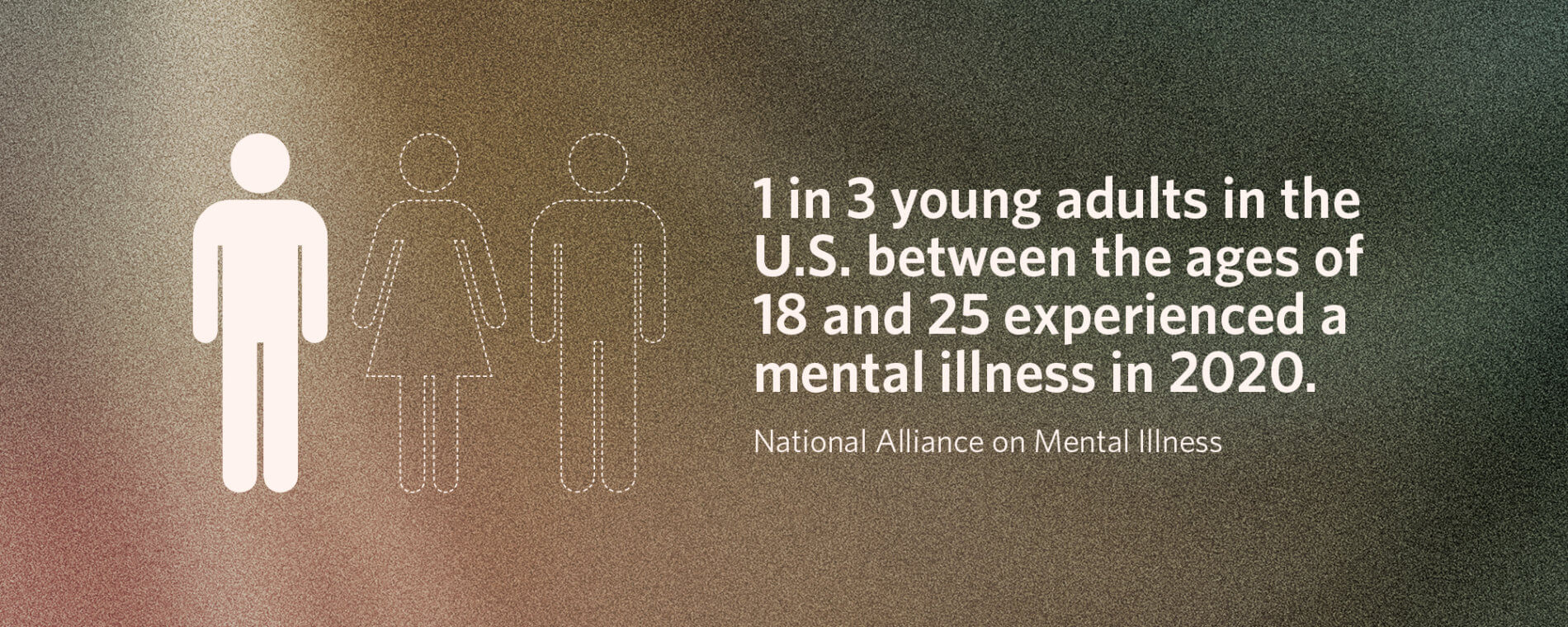
“I’ve been trying to help people see,” said John Hamilton, national director of Camp HOPE America and attendee of the retreat. “We’re sitting in the same boat navigating the same storm.”
The mental, emotional, and social toll of the past few years demands our attention. Untreated and unaddressed mental illness impacts more than those who suffer from it, and the stakes can be high.
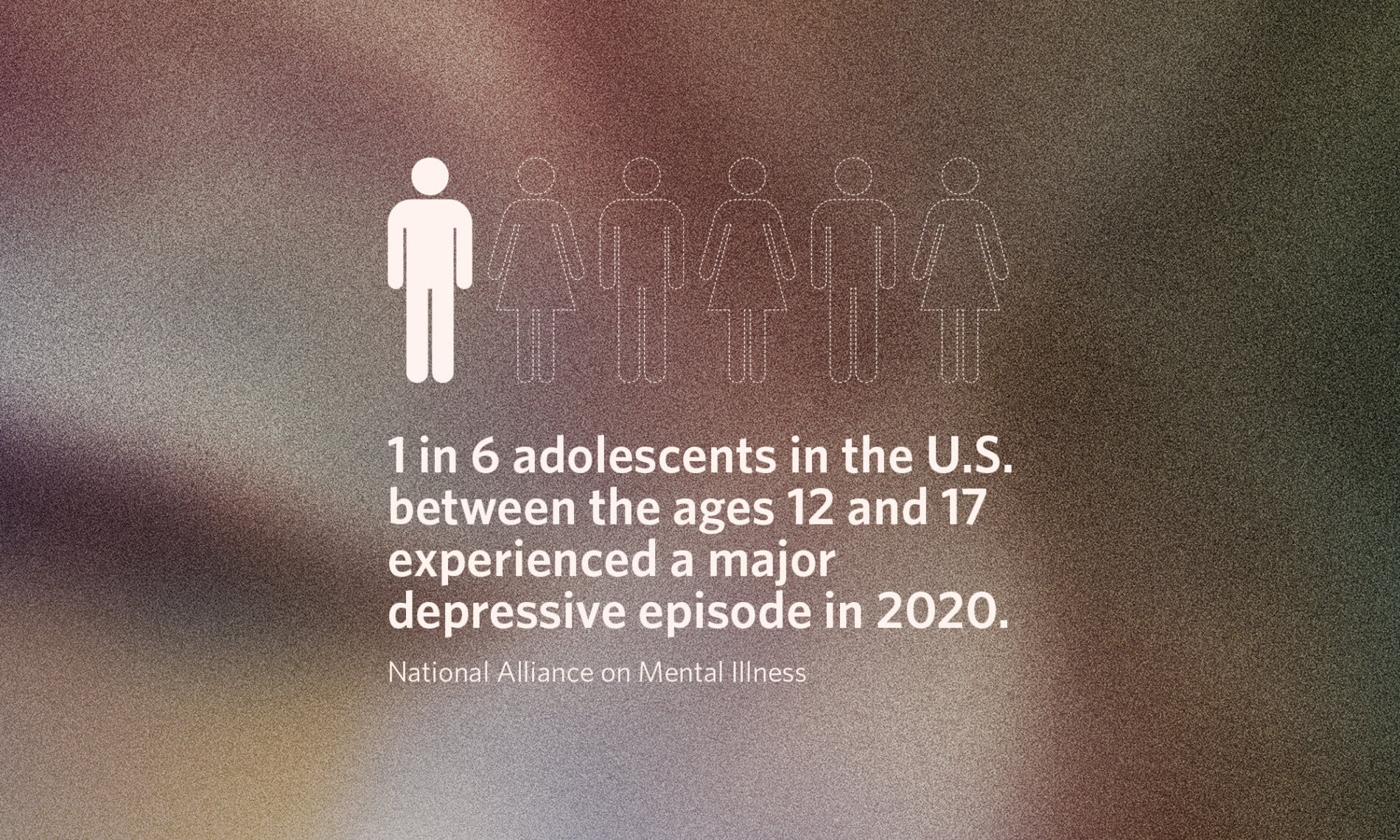
According to the National Alliance on Mental Illness, 90% of people who die by suicide have experienced symptoms of a mental health condition.* In 2019, the Center for Disease Control stated suicide was the second-leading cause of death for people ages 10 to 34.
“There’s a mindset that healing is just an arrival,” John said, “but it requires work to be done and mistakes to be made to get there. We’re discovering the new normal rather than going back to the old.”
This summer, several camps throughout the country will test methods of supporting mental wellness for campers and frontline staff. Reflection questions, small “tune-up” sessions throughout the season, and more diverse means of training could provide the camp industry an accessible answer to increasingly widespread mental health concerns.
“Everyone there had a desire to see people heal, and if people are going to do work to heal, they’re not going to do it alone.” John says. “We’re participating with the Foundation to create a better future for this world.”
It’s bold to imagine the wider benefits such an initiative could have beyond camps. As staff learn how to support the mental health of campers, they also learn about their own mental health needs as well. They may even better understand how to develop healthier personal and professional relationships in the world outside of camp.
For camps to provide some form of retreat, they need to offer a safe space—one that leans away from escapism and avoidance towards transformation and healing.
At Laity Lodge, the groups gathering together tried to model the kind of safe environment they hope to create for campers.
“I haven’t gone to a work function in a really long time where I began to rejuvenate like I did at Laity Lodge,” Laurie said. “There was a special synergy…a kind of vibe in the space that allowed people to be vulnerable. The most magic happened in the coming-together and the shared sense of urgency and commitment.”
“The time at Laity Lodge profoundly shifted my thinking about mental, emotional, and social health,” said Ann Gillard, a volunteer with ACA. “We were able to talk, reflect, and have unplanned conversations about camp-related well-being.”
Dave Brown, camp director of Mountain Camp set in Northern California, was also in attendance, and said one of his highlights on top of the work that was accomplished was forging personal connections in the “in-between moments.”
“It was a nice reminder that the foundation of most good work,” Dave said, “whether in organizations, youth programs, or research, comes through authentic relationships between individual people.”
John of Camp HOPE said that the space allowed them, “to depart from distractions and think, ‘What’s next?’”
Next is summer. The camp season is here, and everyone will be expectantly watching for what works, learning what doesn’t, and most importantly, allowing more young people from across the nation access to the healing they truly need.
*If you are struggling with suicidal ideation, know someone who is, or need emotional support, call the National Suicide Prevention Lifeline at 1-800-273-8255.
